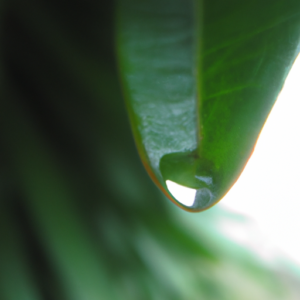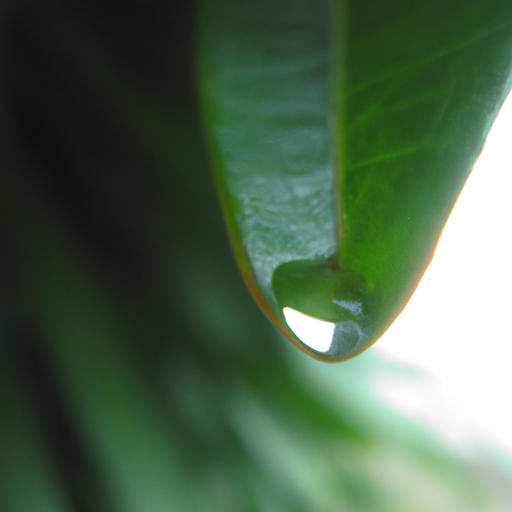My Journey to Finding Natural Remedies for Acne Scars
Hey guys, welcome to my blog where I share my personal journey on how I found natural and effective ways to reduce acne scars. Acne scars are the bane of many people’s existence and can take a toll on our self-confidence. They are caused by the inflammation and damage that acne causes to the skin. The good news is that there are ways to treat and reduce acne scars, and I’m excited to share my experiences with you!
Bring on the Aloe, Tea Tree Oil, Honey, and Lemon Juice!
Okay, let’s talk about natural remedies for reducing acne scars. As someone who has struggled with acne for years, I’ve tried just about every home remedy out there. These four natural remedies have been some of the most effective for me personally.
Aloe Vera
Aloe vera is known for its soothing properties, and it can also help reduce the appearance of acne scars. Apply a small amount of aloe vera gel directly to the scar and leave it on for about 30 minutes before rinsing it off. You can do this once or twice a day.
Tea Tree Oil
Tea tree oil has antimicrobial properties that can help kill the bacteria that causes acne. It also has anti-inflammatory properties that can help reduce redness and swelling. Mix a few drops of tea tree oil with a carrier oil (like coconut oil or jojoba oil) and apply it to the scarred area. Leave it on for 15-20 minutes before rinsing it off.
Honey
Honey is another natural ingredient with antimicrobial properties. It also has moisturizing properties that can help nourish and heal the skin. Apply a small amount of honey directly to the scar and leave it on for 10-15 minutes before rinsing it off. You can do this once a day.

Lemon juice contains alpha-hydroxy acids (AHAs) that can help exfoliate the skin and reduce the appearance of acne scars. Mix equal parts lemon juice and water and apply it to the scarred area with a cotton ball. Leave it on for 10-15 minutes before rinsing it off. Be sure to wear sunscreen if you’re going to be outside, as lemon juice can make your skin more sensitive to the sun.
Keep in mind that natural remedies may not work for everyone, and it’s important to do a patch test before applying any new ingredients to your skin. If you have sensitive skin or are prone to allergies, it’s best to consult with a dermatologist before trying any new home remedies.
## OTC Treatments: Creams and Retinoids to Combat Acne Scars Hey guys! So, we’ve talked about natural remedies for acne scars, but sometimes OTC treatments are the way to go. Over-the-counter creams can help reduce the appearance of acne scars, while retinoid creams can actually help prevent future breakouts. One popular option is to use creams containing alpha hydroxy acids (AHAs) and beta hydroxy acids (BHAs). These acids work by exfoliating the skin, helping to remove dead skin cells and promote cell turnover. The result? Smoother skin and less visible scars. Some common ingredients you may find in these types of creams include glycolic acid, salicylic acid, and lactic acid. Another OTC treatment to consider is using a retinoid cream. Retinoids are derived from Vitamin A and work by increasing cell turnover and reducing oil production. This can be especially helpful for those who have acne-prone skin as it can help prevent future breakouts, in addition to reducing the appearance of scars. It’s important to note that retinoids can be quite strong, so it’s best to start with a low concentration and gradually work your way up. Of course, as with any OTC treatment, it’s important to read the label and follow the instructions carefully. And if you’re unsure if an OTC treatment is right for you, it’s always a good idea to consult with a dermatologist. Stay tuned for our next section on professional treatments for acne scars!
Get the Experts Involved: Professional Treatments for Acne Scars
When it comes to dealing with acne scars, natural remedies and over-the-counter treatments can only go so far. For deeper and more stubborn scars, it may be time to consider professional treatments. In this section, I’ll go over some of the options you can explore with a dermatologist or a skincare professional.
One of the most popular professional treatments for acne scars is chemical peels. This procedure involves applying a chemical solution to the skin which helps to remove the outer layer. This reveals new, smoother and healthier-looking skin. Depending on your specific needs, your dermatologist may recommend a mild, medium or deep chemical peel. You may experience some redness and peeling after the treatment, but the results can be significant.
Another option for treating acne scars is laser therapy. This involves using a focused beam of light to target damaged skin cells and stimulate the growth of new cells. There are different types of lasers that can be used, including ablative and non-ablative lasers. Ablative lasers remove the outer layer of skin while non-ablative lasers work beneath the surface of the skin. Your dermatologist will determine which type of laser treatment is best for your skin and the type of acne scars you have.
Finally, microneedling is a treatment that involves puncturing the skin with tiny needles to stimulate collagen production. This can improve the texture and appearance of acne scars by reducing their depth and visibility. The procedure may be repeated several times, depending on the severity of your scars. After microneedling, you may experience some redness, swelling or bruising, but these side-effects usually disappear within a few days.
It’s important to keep in mind that professional treatments can be more costly and may require more downtime compared to natural remedies and over-the-counter treatments. However, they can also provide more noticeable and longer-lasting results. If you’re considering professional treatments, it’s best to consult with a knowledgeable skincare professional to determine the best course of action for your specific needs and skin type.
Conclusion: My Take on Acne Scar Reduction
Okay, folks, it’s time to wrap up our discussion on home remedies for reducing acne scars. After doing a lot of research and consulting with my dermatologist, I’ve come to some conclusions that I wanted to share with you.
First and foremost, I want to emphasize the importance of consulting with a dermatologist if you’re struggling with acne scars. They can recommend the best course of action for your particular skin and provide “expert advice” on how to proceed. Home remedies are great as a supplement, but nothing compares to the advice of a trained professional.
That being said, there are some natural remedies that may help reduce the appearance of acne scars. Aloe vera, tea tree oil, honey, and lemon juice have all been shown to have some benefits for skin. However, these remedies are not scientifically proven to work on everyone, and you should always do a patch test before applying them to your face.
If natural remedies don’t seem to be doing the trick, there are over-the-counter creams and retinoid creams that may provide more reliable results. Just be sure to follow the instructions carefully and not over-apply, as this can lead to further irritation or even scarring.
Finally, for more severe cases, there are professional treatments available such as chemical peels and laser treatments. These can be expensive, but they may be worthwhile if your scars are causing you significant distress.
Overall, the best course of action is to consult with a dermatologist and take their advice on how to proceed. And remember – while it can be frustrating dealing with acne scars, there are options available to help reduce their appearance and leave you feeling confident in your own skin. Don’t forget to check out this article for more information on how facials may also help reduce acne scars.
